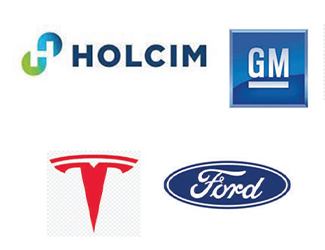Want to Subscribe?
Read Corporate India and add to your Business Intelligence

![]() Unlock Unlimited Access
Unlock Unlimited Access

Published: May 31, 2022
Updated: May 31, 2022

During During the NDA regime headed by Narendra Modi, multi-national companies have quit India in droves. According to Commerce and Industry Minister Piyush Goyal, between 2014 and November 2021, as many as 2,783 foreign companies and their subsidiaries have closed their operations in India and quit the country.
The latest to join the ‘Quit India’ bandwagon of multinational companies is the Switzerland-based Holcim group — on account of macro-economic regulatory concerns and so as to focus on its core business. Holcim follows some of the world’s biggest MNCs, including Ford, General Motors and Tesla, who have decided to leave India for good.
This comes exactly a decade after the world’s biggest telecom players left India in the aftermath of the Supreme Court judgement in 2012 which cancelled all wireless telephony licences.
The long list of companies that have quit India in the last 9 years includes Cairn Energy, Hutchison Telecommunications International, Docomo, Lafarge, Carrefour, Daiichi Sankyo and Henkel, while foreign banks such as Citi, Royal Bank of Scotland and Barclays are focusing completely on wholesale banking in the country. In December 2021, Mr Goyal informed the Lok Sabha that between 2014 and November 2021, 2,783 foreign companies and their subsidiaries had closed operations in India.
As many as five automobile MNCs – Ford India, Harley Davidson, UM & Lohia, Man Trucks and General Motors – exited India during the past five years, which, apart from erosion of dealer investments worth Rs 2,485 crore, also resulted in nearly 64,000 job losses.
Incidentally, the exits also come at a time when the Centre and various state governments are rolling out the red carpet with sops such as tax holidays for MNCs who are looking to shift their base from a pandemicbattered China. According to a Parliamentary Standing Committee report tabled in February 2021 for companies shifting out of China, India falls behind countries such as Vietnam, Taiwan and Thailand as preferred destinations
“Of course, many of these exits are guided by macro-economic factors globally. Regulatory issues that affected some of the investments in the past are no longer an issue. Many of these exits are sectorspecific and are also influenced by the past two years of epidemic-related slowdown,” Manoj Kumar, founder and managing partner of Delhi-based law firm Hammurabi and Solomon, has said.
In the last 10 years, several companies such as Gruppo SES and Dragados of Spain, and Leighten Construction from Australia have explored investment options but did not proceed any further. Companies such as GE and Bombardier, apart from selling products, have also invested in many European countries, but not in India.
According to Manish Agarwal, former PwC Lead on Infrastructure, and co-founder of AskHow India.org (an organisation that simplifies complex public policy debates for the general public), notes that although foreign direct investment (FDI) is still coming to India, strategic investors have stayed away.
“India needs to ensure proper project preparation timelines for public-private projects, provide balanced risk sharing guidelines, and contracts should be enforced properly,” maintains an expert.
So, why has India become a graveyard for MNCs even as local oligarchs are rising fast? MNC officials say that despite the best efforts of the government, corruption and red tape make it difficult for them to do business in India. Smaller countries like Vietnam are far better in attracting investments, and some of the world’s biggest MNCs are making a base in that country.

December 15, 2025 - First Issue

Industry Review

Want to Subscribe?
Read Corporate India and add to your Business Intelligence

![]() Unlock Unlimited Access
Unlock Unlimited Access
Lighter Vein

Popular Stories
Archives
